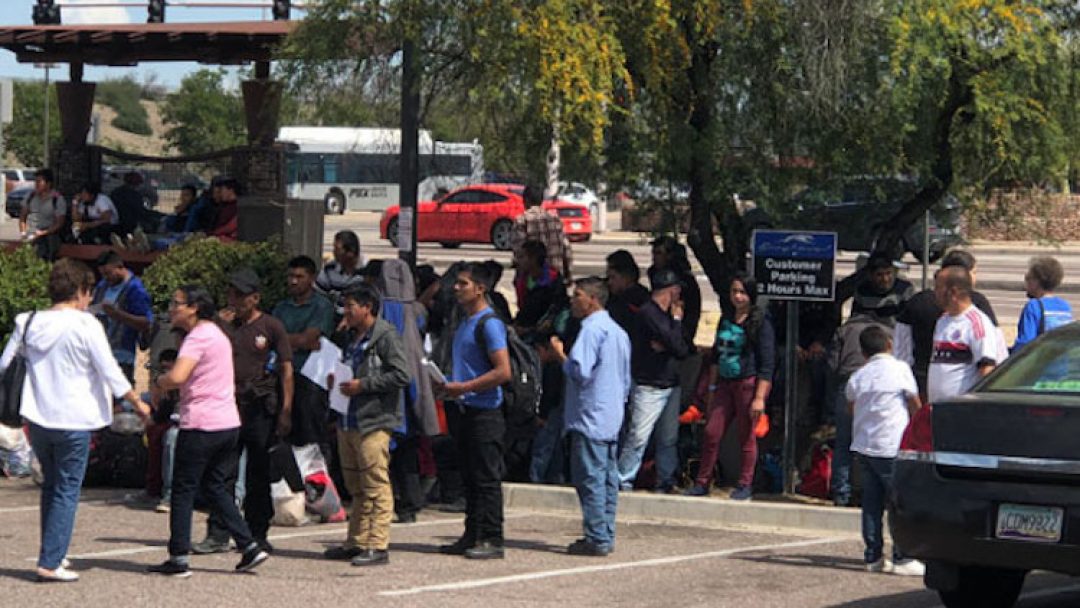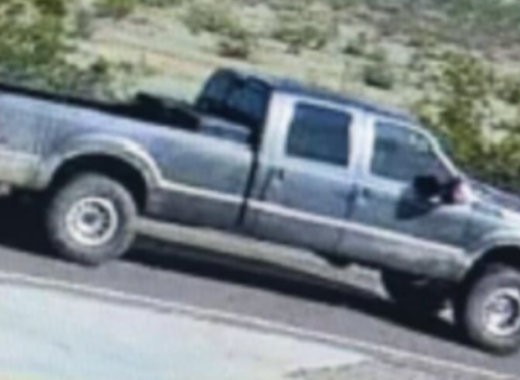U.S. Immigration and Customs Enforcement released 18,500 foreigners from federal detention into Arizona in the range of three months, the organization disclosed to KTAR News 92.3 FM on Wednesday.
Between December 21 and March 20, ICE released a total of 108,500 immigrants into the U.S.
“The sheer volume of family units crossing the border has overpowered ICE’s restricted transportation assets; joined with a necessity to keep these people for close to 20 days, the agency has no alternative however to speedily orchestrate their release,” the agency said in a statement.
ICE makes each endeavor to arrange the release of these people with NGOs that furnish help with essential needs, however the overwhelming influx as of late has immersed these associations also.
Arizona Gov. Doug Ducey called out the federal government Wednesday for the manner in which it has taken care of the release of migrants into the state.
He told KTAR News 92.3 FM’s Mac & Gaydos that the federal government needs to better communicate when and where it plans to drop people off so nonprofits and churches can prepare to assist them.
The groups generally provide migrants with resources, help them make travel plans to associate with relatives and sometimes provide temporary shelter.
Ducey called on Congress a week ago to make a move on what he calls a helpful emergency in the state.
Mesa Pastor Magdalena Schwartz told KTAR News a week ago that she and the volunteers she works with were totally overpowered with the numbers.
Schwartz’s system of metro Phoenix churches have housed a huge number of migrants in the course of the last five or so months, and she said she needed to see the governor’s office or the city of Phoenix provide a facility to care for migrants.
The Society of St. Vincent de Paul of Arizona tried a transitory alleviation focus in Phoenix a week ago with an end goal to give migrants essential necessities.
Be that as it may, the group is unfit to provide overnight shelter and can only serve about 100 people per day.
Michael Stancliff with the Phoenix Restoration Project said his group isn’t feeling the strain, as it’s ceaselessly getting more volunteers.
“For each church that pulls back another means up,” he revealed to KTAR News a week ago.
Henry Lucero, the Phoenix field director for ICE, told to KTAR News a week ago that it has no legal obligation to house migrants it releases.
“I know it’s not practical. They’re doing it with volunteer help and volunteer gifts,” he said.
Maricopa County Sheriff Paul Penzone says the effect of thousands of migrants being released from federal detention into Arizona hasn’t yet significantly influenced nearby communities, yet he stresses over how “unprepared” the state is to deal with the large numbers.
“I don’t know that we’ve already noticed a significant impact in any particular way, however we should not overlook that a ton of the zones that we watch as an essential obligation will be the rural areas,” Penzone told KTAR News 92.3 FM’s Mac & Gaydos on Thursday.
“So it takes a little before they’re affected if these populations are being dropped directly in the metropolitan, in the more populated spaces such as Phoenix.”
He contrasted the greatness of the circumstance with the migration of unfortunate casualties after a catastrophic event.
That edginess can lead people to break the law, regardless of whether its property crime or a heightening of viciousness, he said.
“I’m simply discussing people in any circumstance in which they need to figure out how to endure,” he said.
“Also, presently you have people who are not legitimately in the nation who are going to seek after roots, such as employment, but you need E-Verify, which implies since you’re obtaining a character not your very own and carrying out a crime to do as such.”
Penzone said Arizona isn’t prepared to manage the high quantities of individuals being dropped off with very few resources.
“You can’t have a volume of people and drop them into a populace and say, ‘fend for yourself’ and not imagine that it will influence crime rates or personal satisfaction for that community. It will have an impact.”
He said it’s not U.S. Immigration and Customs Enforcement’s blame, however the greater issue of migration and ways to citizenship should be tended to.
“We can’t have court processes that take two, three, four, five years to decide whether someone will be deported or not,” he said.
“That is nonsense. In addition to the fact that it is flippant, it is dangerous.”
Penzone approached legislators to quit being divided and discover arrangements as opposed to “kicking the can down the road.”
“We need to accomplish more to secure our border through multiple resources, not only one,” he said.
“We need to accomplish more to get our immigration laws and processes to be present and to address the issues of our present difficulties.”








